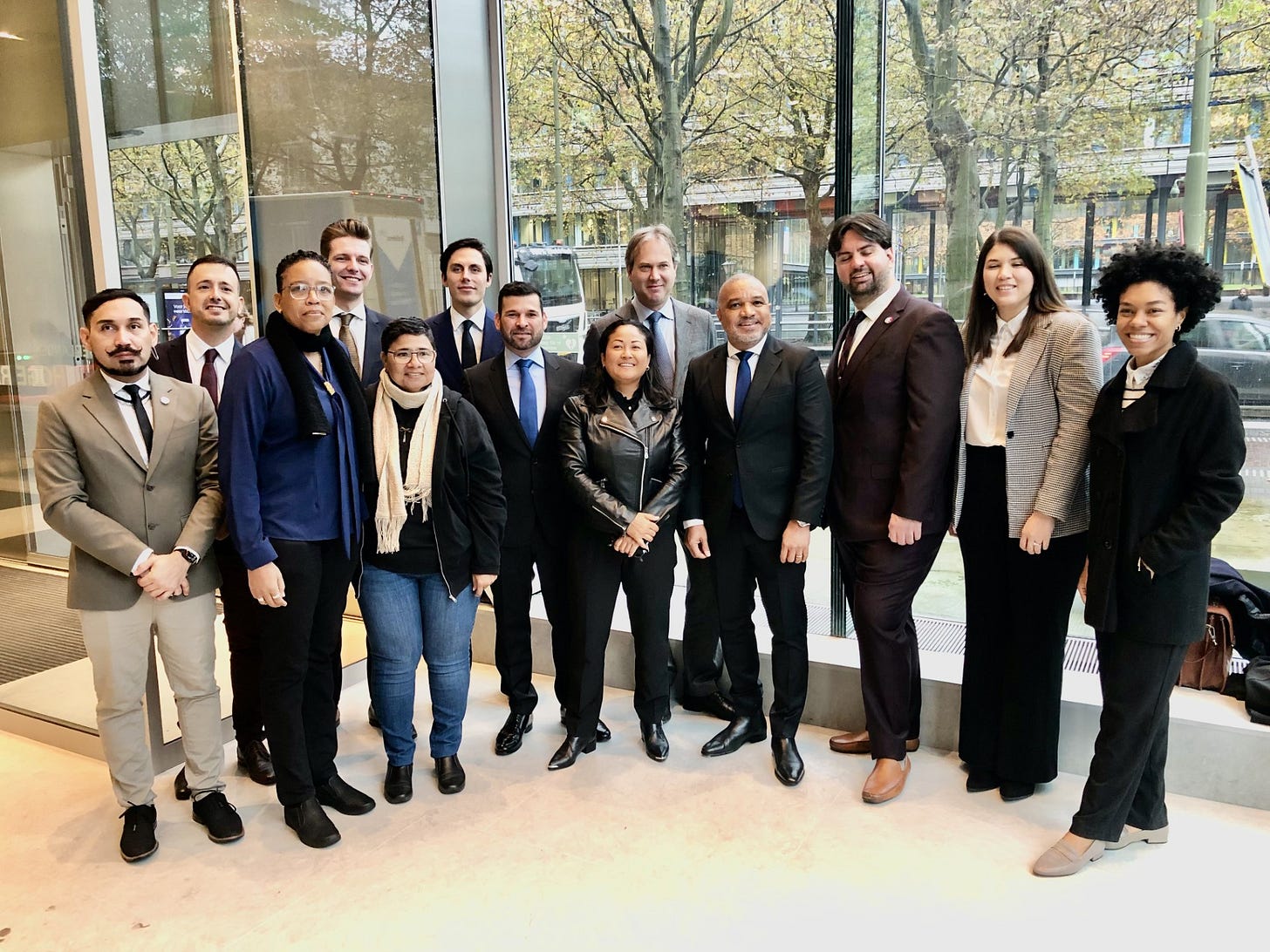Latvia civil union law on hold
Proposed civil union laws in Poland and Lithuania may not make it either
Aruba and Curacao: Openly gay Dutch Senator Boris Dittrich snapped the above picture of many of the Curacao litigants in the Cassation trial for same-sex marriage heard in The Hague last Friday. The court will hear a submission from the Attorney General January 19, and then a final decision will follow in February or March.
Latvia: The president has put a two-month halt on the registered partnership law that was passed last month, after the constitutional minimum of 34 MPs wrote a letter saying they intend to collect signatures to force a referendum on it. Those MPs now have two months to collect 155,000 signatures – no small task in a country of just 1.8 million. Since the law didn’t take effect until July 2024, this doesn’t have any immediate impact.
Lithuania: Baltic News Network reports that the governing coalition may fracture in part over LGBTQ rights issues. Last week, a bill to repeal the “gay propaganda” law that was ruled in violation of the European Convention on Human Rights earlier this year failed, much to the annoyance of the coalition’s left-leaning partners. The government also has a gender-neutral cohabitation bill awaiting a final reading, and last week’s vote doesn’t look like a good sign for it. Next year is an election year.
Poland: The center-left-leaning coalition that won last month’s elections has formally signed a governing agreement ahead of the new Parliament meeting for the first time today, but due to procedural shenanigans by the outgoing government, they likely won’t get the chance to actually begin governing for several weeks. The coalition agreement notably does not include same-sex civil unions, as had been promised by its leader Donald Tusk, but does include making anti-LGBT hate speech a crime.
Japan: As the Diet prepares to debate a new assisted reproduction law, there are calls to ensure that it provides for non-discrimination against same-sex couples seeking care. Recently, some hospitals have refused to give care to lesbians who were fertilized by artificial insemination.
And a date for a second same-sex marriage trial in Tokyo has been set for Nov 30.
Canada: Federal Conservative Party leader Pierre Poilievre was caught on video making dog-whistle remarks about “radical gender ideology” in schools.
Austria: The government has released more details of its compensation scheme for people impacted by historical anti-gay laws. Those investigated will receive 500 euros, those who were convicted get 3,000 euros.
Spain: Hundreds of protesters demonstrated in Madrid against the city’s far-right regional government plans to repeal several LGBTQ+ rights laws, including gender recognition and the conversion therapy ban. The regional law is subordinate to the national law, which also protects these rights, but there’s an obvious symbolism to what the government is doing.
Meanwhile, the threat of right-wing parties taking over the national government has receded, after the left-wing parties reached a deal with Catalan separatist parties to support them continuing in office after this year’s elections made the Catalans kingmakers in a nearly evenly split Parliament.
Duly Noted:
The Japan Times has an (paywalled) article wondering if EU accession talks could boost LGBTQ+ rights in Bosnia, Ukraine, and Moldova. As I’ve written previously, EU membership is increasingly coming with LGBTQ+ rights strings. The most direct impact right now would be required relationship recognition for those married in EU countries, but more rights could follow from EU Parliament or European Court of Justice decisions.
Meanwhile, in the States…
For the Los Angeles Blade, I wrote about a new monthly queer film showcase taking place at a bar in West Hollywood.
Hawaii: Campaigners are gearing up to get legislators to put referendum to repeal the state constitution’s ‘right to limit marriage to heterosexual couples’ clause on the November 2024 ballot.




